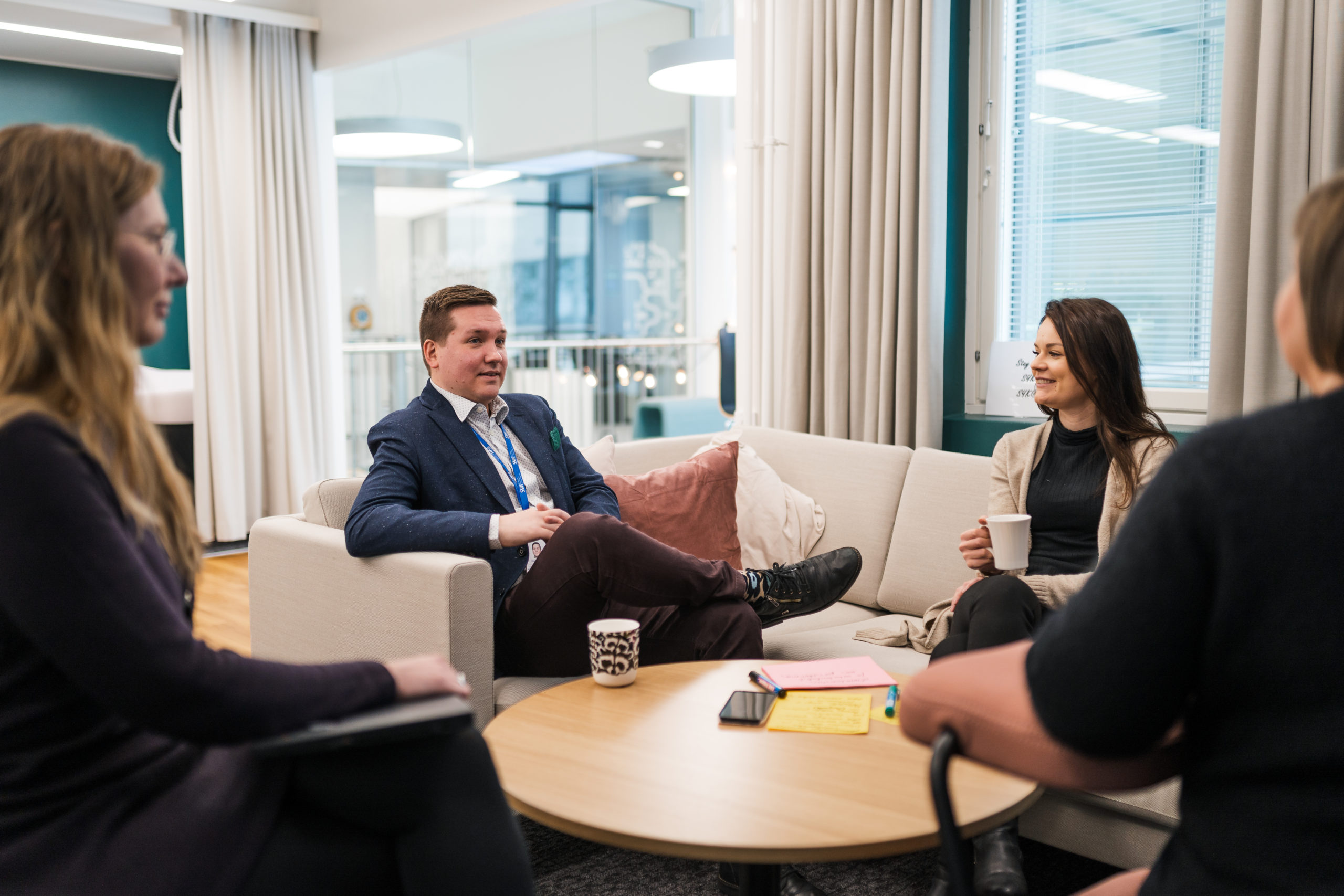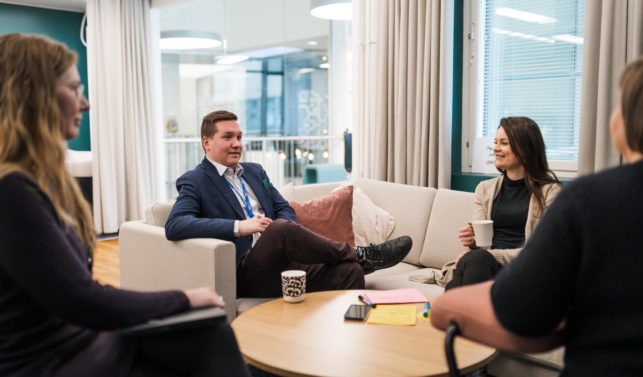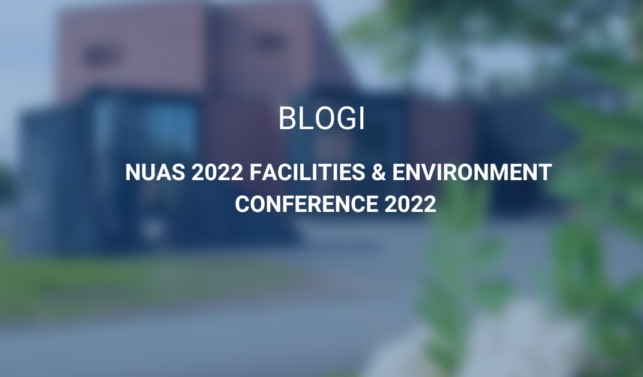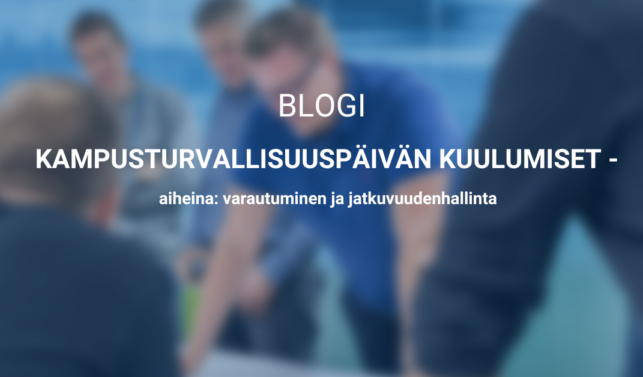1. What is University Properties of Finland Ltd?
University Properties of Finland Ltd (SYK) is a nationwide owner and developer of higher education campuses. SYK rents and develops premises mainly for the needs of owner universities and higher education institutions in ten campus locations. The company’s real estate portfolio also includes holdings in other locations where, for example, research stations or sites used by universities are located, from which the university’s operations have ended and the site has been leased to a third party.
Our campuses have facilities for users such as:
- Eight owner universities, including universities’ teacher training schools
- Four universities of applied sciences
- Three comprehensive schools
- Three wellbeing services counties
- Two private day-care centres
- 92 company tenants
2. Who owns SYK?
SYK is owned by the Finnish state and eight universities. Owner universities in the order of the size of their ownership share are:
- TTY Foundation
- University of Turku
- University of Oulu
- University of Eastern Finland
- University of Jyväskylä
- Åbo Akademi University
- LUT University
- University of Lapland
3. Why has SYK been established?
SYK was founded in 2009 as part of the university reform. The main objective of the university reform was to strengthen the financial and administrative autonomy of universities. To this end, the state established SYK and transferred to SYK the campuses and buildings owned by Senate Properties Ltd and those rented by SYK’s owner universities at the time of its establishment. The company’s business focus is on cost-effective space solutions for owner universities.
Universities have the opportunity to develop their own use of space on campuses owned by SYK. As a result of changes in the use of space by universities, lease contracts have been signed for the properties owned by SYK with universities of applied sciences, cities and municipalities, wellbeing services counties and individual companies – this has resulted in multi-user campuses. In these multi-user campuses, universities and other users of the facilities mutually benefit from proximity to one another, and the premises can support new and different forms of cooperation.
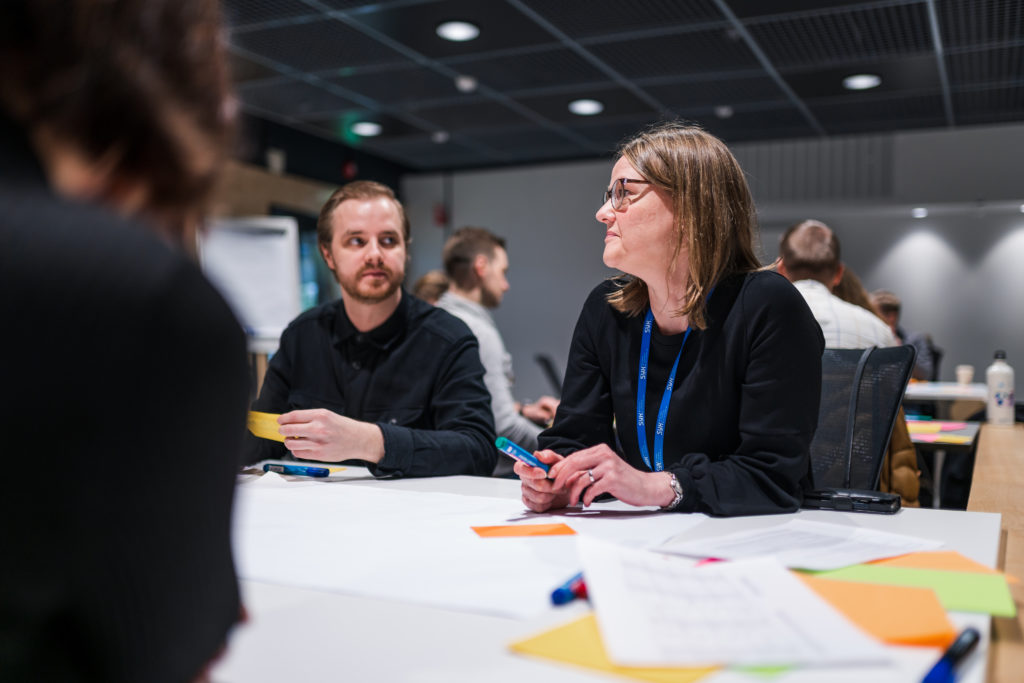
4. What does SYK do?
As defined in SYK’s strategy, the purpose of operations is to be the best campus partner, both to our owner universities using the premises and all our customers operating in our premises. We manage our properties cost-efficiently with a long-term view and in cooperation with our owners. We also wish to enable the development of our owner universities in the coming decades as well.
The principle of SYK’s operations is that the university has access to appropriate and reasonably priced premises required for its operations, and that the value of the properties is preserved also in the long term, and that the management and administration of the properties is cost-effective. SYK’s operations are guided by sustainability and the principles of sustainable development. When these aspects are successfully implemented, it is possible to achieve high customer satisfaction, and customers feel that the campuses are the right place for their operations. Attractive campuses support the activities of our owner universities and the success of every customer operating in the premises.
We create opportunities for regional growth by combining science, research, business and a vibrant urban environment on our premises.
5. And what do SYK employees do?
SYK is an expert organisation with approximately 40 employees. Practical measures on campuses require effective cooperation with different stakeholders. SYK’s experts in different locations work towards common goals and inspire each other. The operational everyday life of the campus focuses on a location-specific campus team, consisting of a customer relationship manager, a technical manager and a developer manager. In daily life, the campus team interacts with several different actors on campuses. In addition to tenants, identified stakeholders include service providers, users of public spaces, visitors and the media.
In addition to these, SYK employs various experts in, for example, the following roles:
- maintenance engineer
- lease manager
- campus development manager
- building services (HVAC) and electrical specialist
In addition, SYK employs many other experts in their field, who are responsible for ensuring that the purpose of the operation – the best campus partnership – is fulfilled, and that SYK is able to serve all its customers on different campuses in the best possible way.
6. What is SYK responsible for?
As a property owner, SYK is responsible for and ensures that the buildings and premises correspond to the operations agreed with the tenants of the premises, and that they are healthy and safe. The owner’s task is to take care of the maintenance of the property and the necessary repairs in accordance with the agreement, so that the level of buildings remains in accordance with the agreement, and that the premises are suitable for their purpose according to the agreement.
The property owner is thus responsible for, for example, the management of the long-term plans (PTS) of the buildings, measures related to property maintenance, such as annual repairs, heating of the premises, repair of roof leaks or pipe leaks, as well as repair of indoor air problems that have been identified by the authorities or have otherwise been jointly agreed. In addition, the property owner’s area of responsibility includes measures related to the management of outdoor areas, such as winter maintenance, non-slip treatment, removal of gritting sands, lawn mowing.
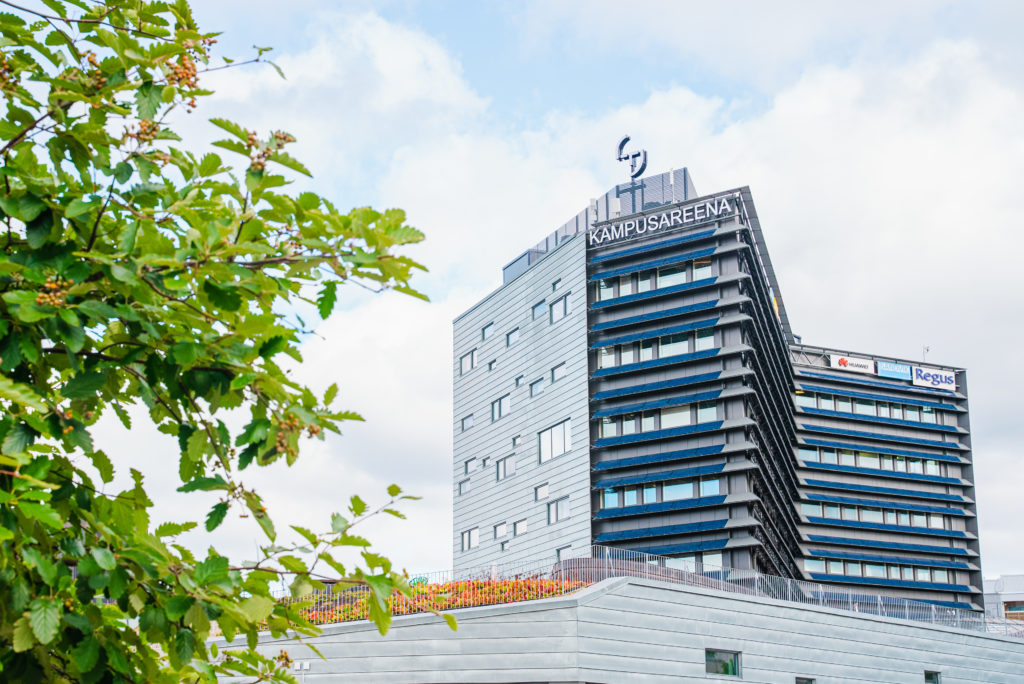
7. What is roughly the role structure between SYK and university property organisations?
The role structure can be summed up as follows: SYK, as a property owner, is responsible for property management and universities, as users of premises, for facility management.
The purpose of property management is to be responsible for the usability, rentability, value development and preservation of a certain property or a part of it. The owner is responsible for the fixed structures, equipment and other systems of the building.
In facility management, the premises are developed and examined from the perspective of the user and services. Facility management consists of usability and behaviour management, facility operations management, facility planning and facility services management. Facility management services often include spatial planning, furnishing, cleanliness, security and restaurant services. As for universities, the roles and responsibilities, for example, between different service units and the property organisation may vary.
8. What does sustainability mean to SYK?
SYK’s operations are guided by sustainability and the principles of sustainable development. Sustainability consists of three key themes: ecological, social and economic sustainability. For each theme, the most important indicators and objectives have been defined, as well as the principles that guide operations. Operations are reported annually in accordance with these indicators as part of the sustainability report.
Ecological sustainability: Environmental sustainability means owning properties with as little negative environmental impact as possible. In addition to minimising harm, the company is constantly looking for opportunities to achieve positive ecological impacts.
Social sustainability: For us, social responsibility means looking after people and the surrounding society, including buildings. As a developer of learning and research environments, we contribute to the creation of a socially responsible society. We work with our owner universities to create safe, healthy and ideal conditions for lifelong learning.
Financial sustainability: Financial sustainability means taking care of the company’s profitability and affordable premises offered to owner universities. In addition to profitable business operations, financial sustainability is also related to risk management and management practices: it means achieving good results with sustainable means. The result and balance sheet in accordance with the objectives set by the owners enable, for their part, sustainable choices.
In addition to its own operations, the company’s business and sustainability policy are linked to the UN Sustainable Development Goals.
9. How does SYK, together with the owner universities, see the use of space in universities changing in the future?
The use of space will certainly change in the future. For the time being, we are living in an era of transition. Remote studying and work became the norm during the coronavirus pandemic, and they create new kinds of needs, for which new operating models and solutions are sought. Synergies between different operators will be mapped and the multifunctionality of the premises will be focused on even more than before. These issues have been considered in spatial planning for a long time, but now the phenomenon is emphasised and combined with, for example, factors related to the sustainable use of space. It is a strong belief that spaces that enable encounters, innovation as well as work and studies that require concentration will also be needed in the future.
Last year, the TOSI-tilat research project, carried out in cooperation between SYK, the Campus Development unit of the University of Tampere and the Faculty of Built Environment, looked at the future of work and learning environments from the point of view of space users. The research mapped how the university community would like to study and work in the future in the post-pandemic period.
The project identified the impact of the pandemic on work and studies. The pandemic also paved the way for the role of facility solutions and campuses in the future: although people adapted to the extensive period of remote work and study in very different ways, the pandemic revealed something essential about the role of university campuses in people’s sense of community.
Facilities play a major role in the construction of a common identity and the experience of community, both in the university and in other communities. Still, it is not enough. The premises must also support and create a good framework for work – whether it requires concentration or cooperation with others – so that it makes sense to work regularly in common facilities.
Participation in the TOSI-tilat research project provided first-hand information on a very important theme, and the results will be used both in the strategic development of SYK and in the development of individual projects and campuses.
10. What are SYK’s values and how do they appear in practice?
Values are the cornerstone on which the company’s operations are built. They do not guide the operation just by existing, but require people, choices, actions and the right attitude to act as intermediaries.
SYK’s values are:
- Shared responsibility
- Speaking up and listening
- The right attitude
SYK’s own value characters have also been created for each value: Arvo, Otto and Anna. Arvo shares responsibility, helps co-workers and accepts the help offered. He always sees things through – after first making sure that the operation is leading towards a common goal. Otto finds out about things, listens to others and discusses matters, and appreciates different perspectives. He is genuinely present and open-minded, and wants to know how we succeeded. To Anna attitude matters. She gives everything she has got – yet always through joy. Mediocre is not enough and “OK” is not good at all. Anna is also interested in how we did, as well as what we learned from this.
We have created a working environment where values are truly part of what we are and how we operate. Our value characters help us create a good atmosphere together in our work community. Our values rise to the stage already at the recruitment phase when we present our operations to future employees. Arvo, Otto and Anna are involved in every job interview – in the best case, on both sides of the table.
The values are also clearly displayed in our own premises, but these house rules are not visible in our customers’ daily lives. The values are realised in our customers’ experience: in how things go with us. Do we just talk or can we also listen?
You may have already come across our value characters in meetings or other encounters. They are the epitomes of our values – that is, us at SYK.
What else would you like to know about SYK? Please send your question to info@sykoy.fi
We will create the next Q&A package when we receive the next 5 questions.
